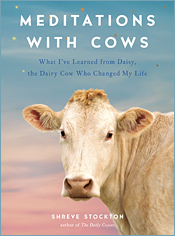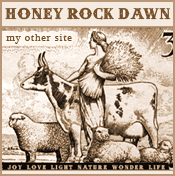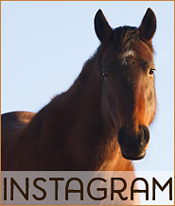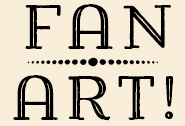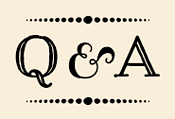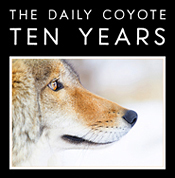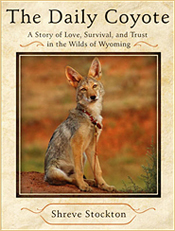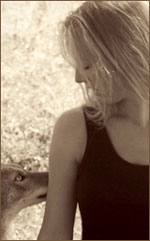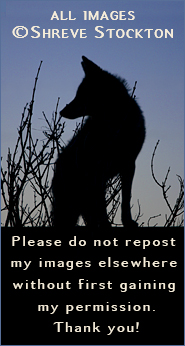Q: I read a book written by a man who has raised and lived with wolves for many years – one of the many issues he brought forth dealt with the differences in how wolves and dogs develop. In simple terms, dogs have been bred for thousands of years to maintain their “puppyhood,” i.e, their willingness to submit themselves to us as their leaders, throughout their lifespans. On the other hand, wolves go through puppyhood and mature, and they begin to make their own decisions. Accordingly, a competition for control can occur, which can be dangerous for a human who assumes he or she is boss. Usually, the writer said, the maturing wolf simply begins to make its own decisions – it may continue on friendly terms with a human, but it won’t take orders anymore. I’m very much interested in how your relationship with Charlie develops, in this regard. Any comments?
A: This theroy is common among those who work with wolves and coyotes, though many dog owners, especially those with difficult dogs, tend to disagree with it. I certainly don’t know enough outside of my own experience with Charlie to take a side. However, all canines work within the pack system, and even with wolves and coyotes, there is an “alpha” who makes decisions which the rest of the pack uphold.
As Charlie matured this winter, he called on me to become extremely strong within myself in order for me to maintain my alpha status. This wasn’t just a task of action, it was a task of energetics.
Though I’ve always considered Charlie and I “a team” and I respect his incredible intellegence and independent thought, by taking the alpha role, I allow Charlie the security that comes from his position as subordinate. I reinforce “the order” in subtle ways all the time. I go through doors first. He no longer gets to sleep on my bed, ever, though we do spoon on the floor or on his dog bed every day. He must sit before going out or coming in, before getting food, and before getting treats. And he does all this, with, I dare say, a coyote smile.
I’ve noticed he watches me closely, and my actions and reactions influence the conclusions he draws for himself – for example, he is very afraid of strange vehicles, but if he sees me walking up to an “unknown” car in the driveway (I make a point of leaning up against it casually, knowing he is watching), he lets go of his fear and deems it safe.
When my truck broke down, I borrowed a friends second truck. When they dropped it off, Charlie ran away from it and hid, yet after seeing me get in and out of it once, Charlie didn’t try to hide from it anymore. That, to me, is an example of the alpha/subordinate relationship – he trusts me enough to trust what I trust.












